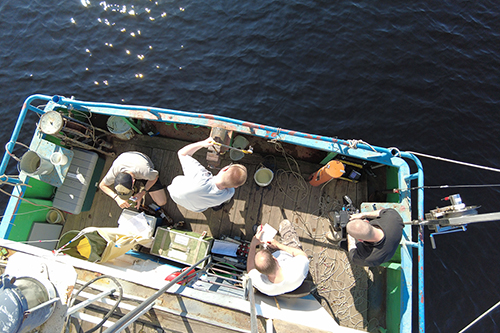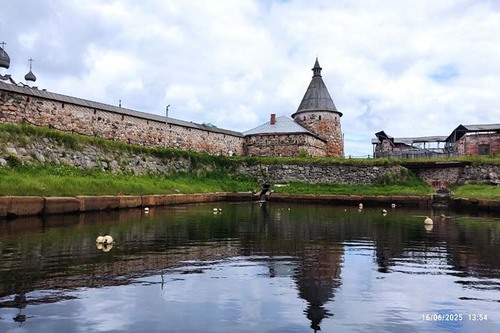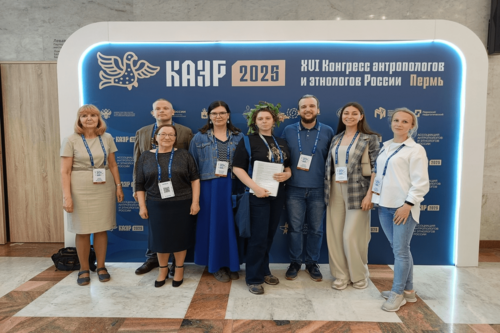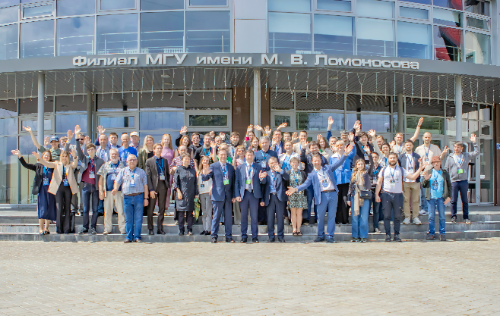– The two pillars that are always found at our conference are spatial development and statistical observation. One is certainly impossible without the other. There is a good background for both objects of study, but at the same time there are questions that researchers still seek to answer. We continue to follow these two vectors this year as well while at the same time setting new tasks for discussions, - remarked Tatyana Morozova, Director of the Institute of Economics KarRC RAS.
Valery Shlyamin, Deputy Director of the Institute for North European and Arctic Studies of the Petrozavodsk State University, reminded that the first Arsenyev’s Readings were held in 1995.
– The new Federation was just coming into being and was in a precarious position, sometimes on the verge of collapse. The authorities had to preserve the Russian Federation in a new capacity, build new federative relationships and, in fact, engage in strategic spatial planning. It was not achieved at once. We have made progress in this respect, but many questions remain open. That is why revisiting the achievements of the 19th and 20th centuries was extremely important for young Russia. And it's good that this initiative appeared here in Petrozavodsk. Arsenyev's Readings helped tidy up the reflections related to a re-evaluation of the place and role of the Republic of Karelia in the new federal state as a border region occupying a truly geostrategic position in the northwest of the country, – told Valery Shlyamin.
The conference is dedicated to the memory of the outstanding Russian economic geographer, founder of Russian statistics and Russian regional economic geography Konstantin Ivanovich Arsenyev (1789-1865). Some parts of his biography are connected with Petrozavodsk and Karelia. Arsenyev's Readings 2024 started with a recapitulation of his contribution to the national and world science.
– This was an outstanding Russian scholar possessing encyclopedic knowledge in a number of scientific spheres: geographer, historian, a man enthusiastic about many other disciplines, who excelled in the science and practice of law, with brilliant oratorical skills and power of conviction, and no wonder he was a mentor to Emperor Alexander II, – reminded Valery Shlyamin.

Deputy Director of the Institute for North European and Arctic Studies of the Petrozavodsk State University Varely Shlyamin
The impact of Konstantin Arsenyev on geography was emphasized by specialists from the Northern Water Problems Institute KarRC RAS - Principal Researcher Nikolai Filatov and Deputy Director for Science Administration Tatyana Regerand.
– Konstantin Ivanovich was one of the founders of the Russian Geographical Society in 1845. He published the book “Concise General Geography”, which has gone through 20 editions. He is indeed one of the most distinguished and prominent people of Karelia, – noted RAS Corresponding Academician Nikolai Filatov.
He also mentioned the plans to make a mobile exhibition dedicated to Konstantin Arsenyev.
The first talk of the plenary session was also devoted to the famous academician. Doctor of Economics Tatyana Morozova told about the main milestones of his life and his contribution to Russian science.
– It was in Petrozavodsk that his idea of writing the first comprehensive statistical description of the country “Drawing up the statistics of the Russian state” was born. Petrozavodsk and the Republic of Karelia can rightly be considered the birthplace of Russian statistics, as well as the place where the world-famous Russian school of economic geography was born. And this should be credited directly to Konstantin Ivanovich, – emphasized the Director.
In his writings, Konstantin Arseniev proposed and substantiated the need for many economic and management reforms in the country, including the abolition of serfdom and the land reform.
His innovative ideas were further developed in the works of famous Russian reformers Sergey Witte and Pyotr Stolypin. “Arsenyev's ideas were the basis for creating the doctrine of economic districts, which is still used to substantiate the allocation of productive forces in Russia. He developed the basic principles of statistical observations and statistical accounting, which are also used today”, – added Tatyana Morozova.
Concluding her talk, she reminded about the importance of raising the awareness of the academician's works. Commenting on the lecture, Lyubov Kulakova, Senior Researcher at the Institute of Economics KarRC RAS, mentioned that one of the results of the Institute's work to popularize the scientist's work is that a street in a new neighborhood in Petrozavodsk was named in honor of Konstantin Arsenyev.
The conference will last until October 11. Researchers from different regions of Russia and Belarus take part in the conference both in person and online. Session topics are: issues of economic geography; spatial development statistics; digitalization of economic governance; prospects for the development of new inter-country integration formats; tourism and recreation in the development of regions. Arsenyev’s Readings 2024 program will also comprise roundtable sessions "Multidimensional model of Russia’s spatial heterogeneity: new trends in the new reality" and “Prospects of Russian-Turkish cooperation in the field of tourism”. Proceedings of the conference will be published upon its completion.











